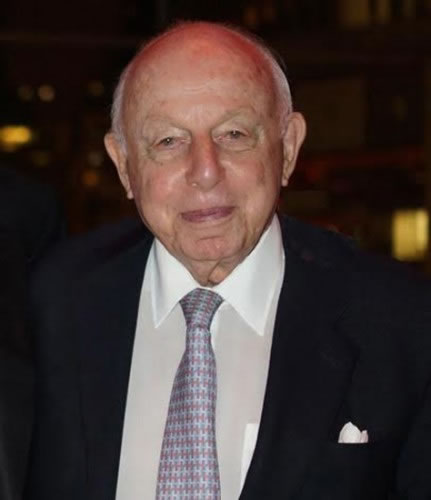
Zolberg Institute Receives Donation from Trustee Henry Arnhold for the Study of Migration and Mobility
As thousands of Syrian refugees fleeing violence and poverty arrived in Europe last year, many policy makers and media outlets portrayed thousands of desperate, traumatized people—many of them children—as “criminals” and “terrorists” who threatened Western security and values.
Not only does such inflammatory and dehumanizing rhetoric hamper efforts at addressing a pressing humanitarian issue, it “undercuts the rights of people that decide or are forced to move from their place of origin,” says Alexandra Délano, assistant professor of global studies at Eugene Lang College.
Délano believes the real crisis lies in the attitudes of policy makers and pundits.
“This isn’t a ‘migrant crisis’ or a ‘refugee crisis’—it’s a crisis of the refugee regime, of humanitarianism, of cooperation,” she says.
Reframing the debate around refugees, as well as other people who, for a variety of reasons, move from their place of origin, is a primary focus of the Zolberg Institute on Migration and Mobility at The New School for Social Research (NSSR).
This week, the Zolberg Institute got a boost in its efforts to study and address issues around migration and mobility with a $7 million donation from New School trustee Henry Arnhold. The funds will be used to transform the Zolberg Institute into a global center for academic research, policy debate, and discussions of global migration and mobility, their economic impact, and their political consequences. It will also fully fund a professorship focused on educating the next generation of leaders in migration research.
“This important gift comes just as the world is reaching a critical juncture in terms of humans moving across borders and around the world,” said Will Milberg, dean of NSSR. “Human mobility is now the baseline, and the Zolberg Institute will become the preeminent space for leading academics and policymakers to reframe the discussion of migration and the impact it has on human rights, as well as the economic effect on emerging markets and market demand.”
“I’m happy to follow in Ari Zolberg’s footsteps by encouraging the study of migration, especially since it has become even more important in today’s globalized world,” Arnhold says. “This issue is perhaps even more important now than it was when Ari founded the International Center on Migration, Ethnicity and Citizenship [the Zolberg Institute’s predecessor] at The New School.”
Under the direction of Délano and Miriam Ticktin, associate professor of anthropology at NSSR, the Zolberg Institute is committed to challenging categories and terminology that paints migrants as a threat to identity or security or as victims without agency. This effort, Délano says, feeds into a larger goal: to protect the fundamental rights of people, regardless of origin, who move because of violence, conflict, human rights violations, economic insecurity, climate change, and other reasons.
In the spirit of The New School, the Zolberg Institute draws on voices from across disciplines—from design and anthropology to politics and public policy—“to contribute to the discussion and to envision solutions that go beyond expected policy recommendations or outcomes,” Délano says.
“By transcending disciplinary boundaries, we can create interventions that foster an environment in which migrants are seen as equals in terms of access to rights and opportunities, as agents that can advocate for themselves, and as members of transnational communities,” Délano says. “We can see the multiple dimensions of the issue and the various spaces and ways in which interventions can and should be made.”
The focus of study at the Zolberg Institute, migration, echoes the origins of NSSR. Founded in 1933 as the University in Exile, NSSR was launched as an emergency rescue program for threatened scholars in Europe. And like its forebear, the Zolberg Institute espouses a truly global and multidisciplinary perspective on pressing international issues.
“Henry Arnhold’s gift directly supports the vision of The New School and substantiates a core commitment of the university to study the issues of our time, including migration and globalization,” said David Van Zandt, president of The New School.